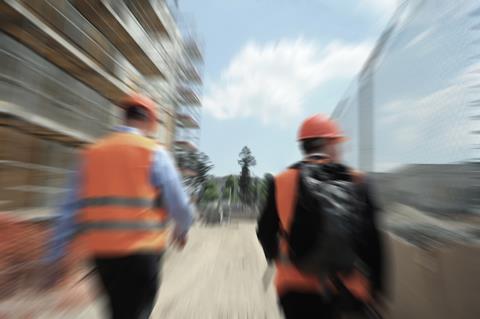Pay in the West Midlands fell by nearly 5% in September following 6.2% rise in August
Average earnings for skilled construction labour fell dramatically across several regions last month despite wages continuing to rise in London and the North-west.
Earnings in the West Midlands fell by nearly 5% in September following a 6.2% increase in August, according to Hudson Contract’s latest analysis of pay trends.
In the North-east, earnings fell by nearly 3% in September compared to a rise of some 7.3% in August, while in the South-west the figure dropped by 5.4% and Yorkshire and the Humber saw pay drop by more than 4%.

Across England and Wales, earnings for skilled construction workers fell on average by 1.7% to £913, with average pay dipping from a year-on-year increase of more than 6% in August to 4.7% in September.
But in London, the figure continued to increase by 1.8%, albeit at a slower rate than August’s figure of 3.4%.
And in the North-west, the rate of pay growth increased from 1.3% in August to 3.3% last month.
Hudson Contract managing director Ian Anfield said the government’s furlough scheme for the self-employed had contributed to ongoing labour shortages.
He said: “Skills shortages – once an acute regional problem – has been exacerbated across the country by the Self-Employment Income Support Scheme (SEISS).”
Official statistics show that construction workers claimed grants worth £966m in the last round of SEISS, which covered the period to 15 September.
This followed claims of £3.1bn in the period to 31 July 2020, £2.4bn in the period to 31 October 2020, £2.3bn in the period to 31 December 2020 and £2.2bn in the period to 6 June 2021.
In total, the sector has claimed grants worth nearly £11bn through the scheme, which would amount to hundreds of millions of man-hours.
Anfield added: “The industry only suffered a two-week lockdown in March 2020 and, were it not for labour shortages and material supply blockages, it would have fully recovered to pre-pandemic levels fairly soon after.
“The housing market is still strong at the same time as people are continuing to spend on extensions and improvements rather than going on holiday.
“As SEISS ends, many will return to work, but because huge infrastructure projects such as Hinkley Point and HS2 are in full swing, government departments have accelerated ‘shovel-ready’ projects and the ongoing housing and domestic work, demand will continue to outstrip supply.”




























No comments yet